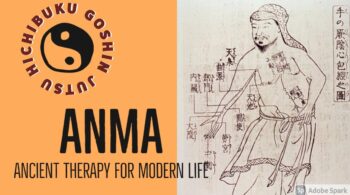Welcome to hello fresh every week we create the most delicious step-by-step recipes source the freshest ingredients in just the right quantities and deliver them in an insulated box straight to your door order your box today online at hello fresh com.
 Food is our oldest conversation and our most emotional one. Being nourished at our mother’s breast is our first activity after birth. As our lives unfold, we come to associate food with our self-image, our relationships, and comfort from daily stress. Unfortunately, we also develop a lot of negative associations with food based on the “stories” our parents tell us about it.
Food is our oldest conversation and our most emotional one. Being nourished at our mother’s breast is our first activity after birth. As our lives unfold, we come to associate food with our self-image, our relationships, and comfort from daily stress. Unfortunately, we also develop a lot of negative associations with food based on the “stories” our parents tell us about it.
Where Do Our Eating Habits Come From?
Inside, each one of us carries a personal history of why we choose the foods we presently eat. This history begins with our parents’ relationship to food and their parents’ food patterns. The way we feed our children and the emotional issues we develop around food often are eating patterns that have been passed down through several generations.

Unless we are born with a serious disease or digestive defect, all of us start out in life on an even playing field. If you look at a newborn, you see a being who knows nothing about nutrition but has an innate, physical intelligence about when and how much he needs to eat. A young baby eats frequently to build and repair his body. He has no social input, no cultural concepts of food. All he knows is what he feels. He can easily sense what his body requires and when it is time to eat. He cries when he is hungry because he knows that hunger is a bad thing.
This is so different from what we do as adults—we congratulate ourselves when we feel hungry because that means that we are losing weight.
Family Stories: Food and Guilt
Sadly, over the years, most of us have lost touch with that wonderful body-knowing and sensitivity as we have been given incorrect labels and misinformation about food.
There are many ways of losing touch with the body’s innate instincts and intelligence about our nutritional needs. In every family, eating patterns are passed down like stories from mother and father to daughter and son. For example, when our parents want us to clean our plates, they don’t just say, “Eat your food,” they make a story out of it. “You must eat all of your food because there are many people in the world who go to bed hungry every night. They would love to eat those fried potatoes or brussel sprouts that you don’t like. You should be thankful that we can give you fried chicken because many people in the world can not afford meat.”
As times change, the stories get modified. We might no longer believe, as our parents did, that fried foods or red meat are good for our children, so we may be urging them to eat their filet of salmon or chicken breast or to finish their steamed broccoli—but the story is basically the same. Our children must eat, not because of what the food does for their bodies, or how it will help them to become stronger or more healthy. (In fact, most of us have no real idea what food actually does in our bodies.) They should eat because others cannot eat. Or because they will not get their allowance if they don’t.
So, on some level, food becomes associated with guilt and scarcity. We have inadvertently mislabeled food and its purpose.
Many of us can remember conversations like the following around Halloween or Easter. If our parents didn’t want us to eat a whole big Easter basket full of goodies, or a bag full of Halloween candy, they didn’t say, “Honey, eating all that sugar will make you feel hyper and dizzy. Then later it will make you feel tired and cranky. It’s better to eat just a little candy every day, not a whole lot at once.”
Instead, they told us, “Go ahead, don’t listen to me. Just eat all that sugar and make yourself good and sick.” The sad part is that we hold onto these thoughts as we get older and end up saying the same things to our own children. Creating New Conversations about Food
Read More: How to plant celery and prepare persimmons





